DS Automobiles DS 4 vs Mercedes EQA - Differences and prices compared
Costs and Efficiency:
Looking at overall running costs, both models reveal some interesting differences in everyday economy.
DS Automobiles DS 4 has a clearly perceptible advantage in terms of price – it starts at 34000 £, while the Mercedes EQA costs 44200 £. That’s a price difference of around 10260 £.
Engine and Performance:
Power, torque and acceleration say a lot about how a car feels on the road. This is where you see which model delivers more driving dynamics.
When it comes to engine power, the Mercedes EQA has a convincingly edge – offering 292 HP compared to 130 HP. That’s roughly 162 HP more horsepower.
In acceleration from 0 to 100 km/h, the Mercedes EQA is convincingly quicker – completing the sprint in 6 s, while the DS Automobiles DS 4 takes 10.90 s. That’s about 4.90 s faster.
In terms of top speed, the DS Automobiles DS 4 performs noticeable better – reaching 203 km/h, while the Mercedes EQA tops out at 160 km/h. The difference is around 43 km/h.
There’s also a difference in torque: Mercedes EQA pulls clearly stronger with 520 Nm compared to 300 Nm. That’s about 220 Nm difference.
Space and Everyday Use:
Beyond pure performance, interior space and usability matter most in daily life. This is where you see which car is more practical and versatile.
Seats: offers more seating capacity – vs .
In curb weight, DS Automobiles DS 4 is evident lighter – 1558 kg compared to 2045 kg. The difference is around 487 kg.
In terms of boot space, the DS Automobiles DS 4 offers distinct more room – 430 L compared to 340 L. That’s a difference of about 90 L.
In maximum load capacity, the Mercedes EQA performs minimal better – up to 1320 L, which is about 80 L more than the DS Automobiles DS 4.
When it comes to payload, DS Automobiles DS 4 hardly perceptible takes the win – 442 kg compared to 425 kg. That’s a difference of about 17 kg.
Who comes out on top?
Overall, the Mercedes EQA shows itself to be leaves the rival little chance and secures the title of DriveDuel Champion.
It convinces with the more balanced overall package and proves to be the more versatile choice for everyday use.
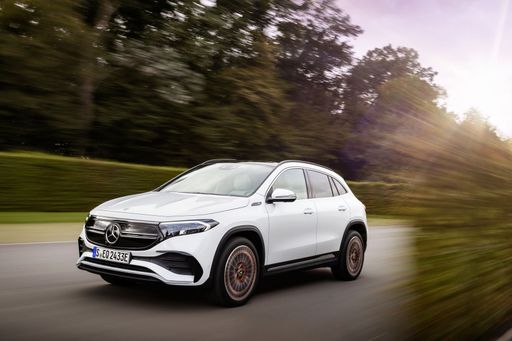 @ Mercedes-Benz Group Media
@ Mercedes-Benz Group Media
Mercedes EQA
Costs and Consumption
View detailed analysis
Engine and Performance
View detailed analysis
Dimensions and Body
View detailed analysis
DS Automobiles DS 4
The DS 4 is a striking compact that wears couture-inspired styling like a tailored suit, and its cabin feels more boutique hotel than ordinary hatchback with premium materials and clever detailing. On the road it mixes poise with comfort, rewarding drivers who want a refined, characterful alternative to the usual suspects — and enjoy the odd admiring glance at the lights.
details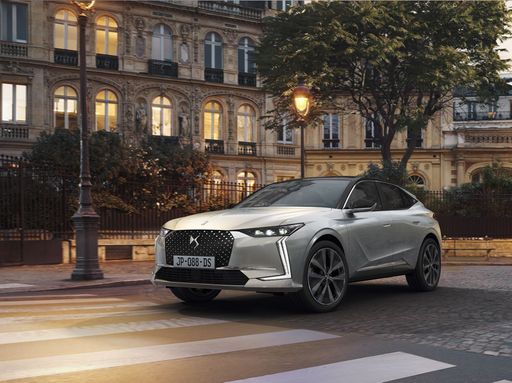 @ DS Automobiles / Stellantis Media
@ DS Automobiles / Stellantis Media
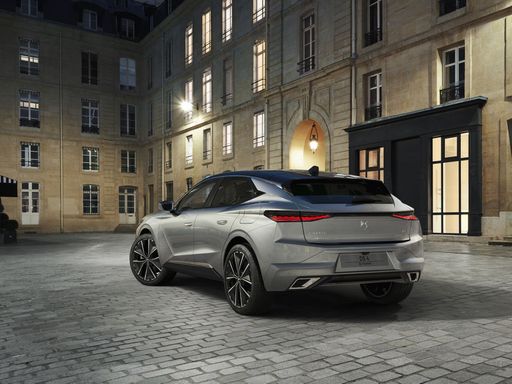 @ DS Automobiles / Stellantis Media
@ DS Automobiles / Stellantis Media
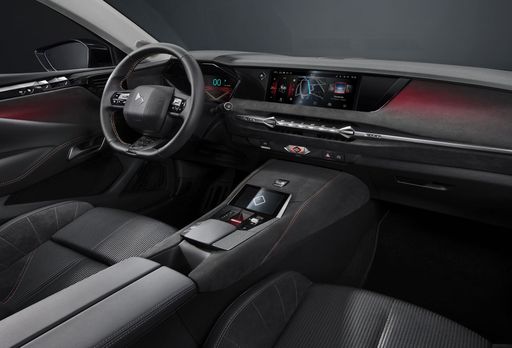 @ DS Automobiles / Stellantis Media
@ DS Automobiles / Stellantis Media
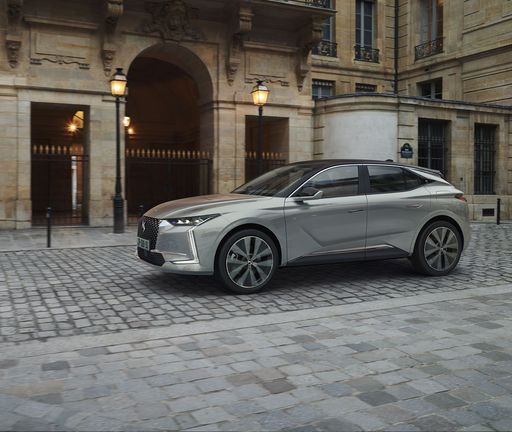 @ DS Automobiles / Stellantis Media
@ DS Automobiles / Stellantis Media
Mercedes EQA
The Mercedes EQA slips into the electric crossover ranks with the brand’s familiar luxury polish, offering a quiet, fuss-free drive that feels perfectly at home in the city or on a country escape. Inside it’s neatly finished and tech-forward, projecting grown-up refinement even if it plays things a bit safe for anyone chasing outright excitement.
details @ Mercedes-Benz Group Media
@ Mercedes-Benz Group Media
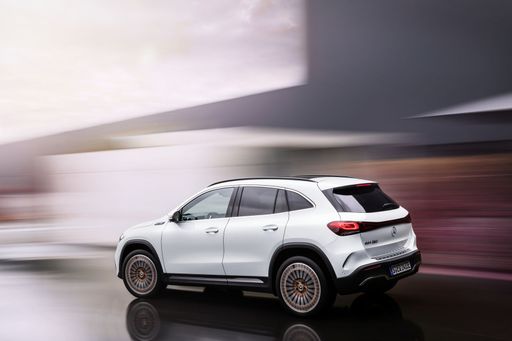 @ Mercedes-Benz Group Media
@ Mercedes-Benz Group Media
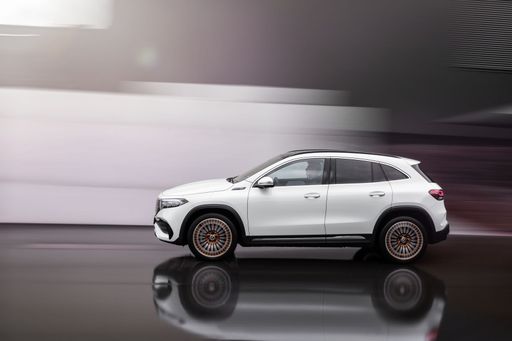 @ Mercedes-Benz Group Media
@ Mercedes-Benz Group Media
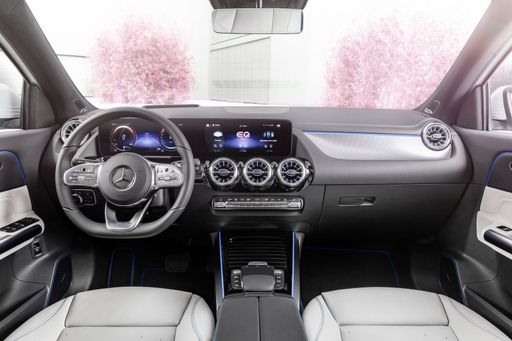 @ Mercedes-Benz Group Media
@ Mercedes-Benz Group Media
 @ DS Automobiles / Stellantis Media
@ DS Automobiles / Stellantis Media
|
 @ Mercedes-Benz Group Media
@ Mercedes-Benz Group Media
|
|
|
|
Costs and Consumption |
|
|---|---|
|
Price
34000 - 41700 £
|
Price
44200 - 57400 £
|
|
Consumption L/100km
5.20 L
|
Consumption L/100km
-
|
|
Consumption kWh/100km
-
|
Consumption kWh/100km
14.4 - 16.9 kWh
|
|
Electric Range
-
|
Electric Range
476 - 561 km
|
|
Battery Capacity
-
|
Battery Capacity
70.50 kWh
|
|
co2
137 g/km
|
co2
0 g/km
|
|
Fuel tank capacity
53 L
|
Fuel tank capacity
-
|
Dimensions and Body |
|
|---|---|
|
Body Type
Hatchback
|
Body Type
SUV
|
|
Seats
5
|
Seats
5
|
|
Doors
5
|
Doors
5
|
|
Curb weight
1558 kg
|
Curb weight
2045 - 2115 kg
|
|
Trunk capacity
430 L
|
Trunk capacity
340 L
|
|
Length
4400 mm
|
Length
4463 mm
|
|
Width
1830 mm
|
Width
1834 mm
|
|
Height
1470 mm
|
Height
1608 - 1613 mm
|
|
Max trunk capacity
1240 L
|
Max trunk capacity
1320 L
|
|
Payload
442 kg
|
Payload
425 kg
|
Engine and Performance |
|
|---|---|
|
Engine Type
Diesel
|
Engine Type
Electric
|
|
Transmission
Automatic
|
Transmission
Automatic
|
|
Transmission Detail
Automatic Gearbox
|
Transmission Detail
Reduction Gearbox
|
|
Drive Type
Front-Wheel Drive
|
Drive Type
Front-Wheel Drive, All-Wheel Drive
|
|
Power HP
130 HP
|
Power HP
190 - 292 HP
|
|
Acceleration 0-100km/h
10.90 s
|
Acceleration 0-100km/h
6 - 8.6 s
|
|
Max Speed
203 km/h
|
Max Speed
160 km/h
|
|
Torque
300 Nm
|
Torque
385 - 520 Nm
|
|
Number of Cylinders
4
|
Number of Cylinders
-
|
|
Power kW
96 kW
|
Power kW
140 - 215 kW
|
|
Engine capacity
1499 cm3
|
Engine capacity
-
|
General |
|
|---|---|
|
Model Year
2024 - 2025
|
Model Year
2024 - 2025
|
|
CO2 Efficiency Class
E
|
CO2 Efficiency Class
A
|
|
Brand
DS Automobiles
|
Brand
Mercedes-Benz
|
Is the DS Automobiles DS 4 offered with different drivetrains?
Available configurations include Front-Wheel Drive.
The prices and data displayed are estimates based on German list prices and may vary by country. This information is not legally binding.
